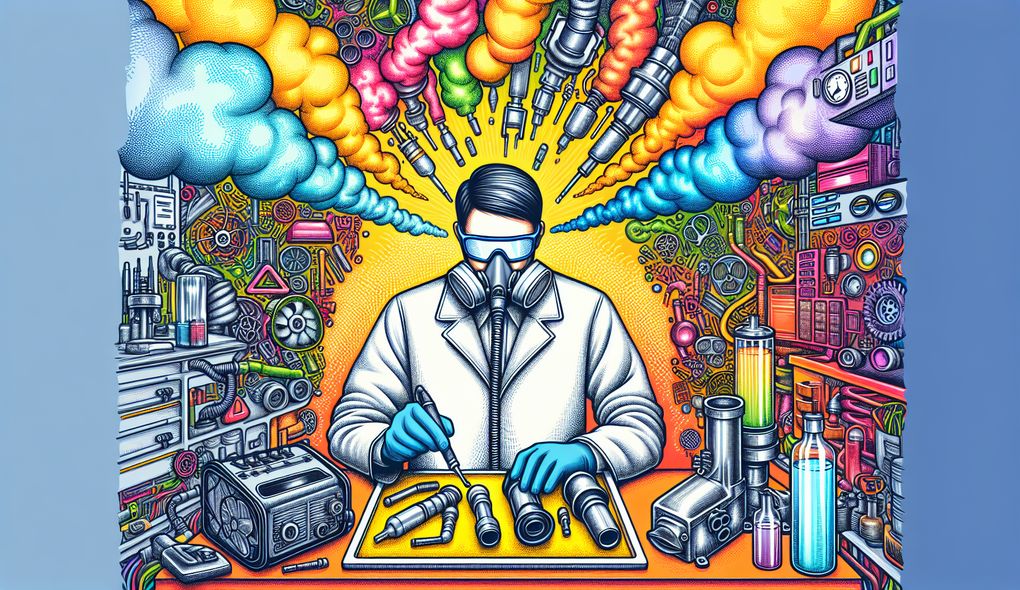Can you provide an example of a time when you had to innovate new techniques for reducing emissions?
SENIOR LEVEL

Sample answer to the question:
Yes, I can provide an example of a time when I had to innovate new techniques for reducing emissions. In my previous role as an Emissions Control Engineer at XYZ Company, we were tasked with developing a solution to reduce emissions from a large manufacturing facility. After conducting extensive research and analysis, I identified that a major source of emissions was the outdated combustion system used in the manufacturing process. I proposed an innovative technique of implementing an advanced combustion system that utilized cleaner fuels and optimized combustion efficiency. I collaborated with the design team to develop the system, conducted pilot tests, and closely monitored the emissions data. The implementation of the new technique resulted in a significant reduction in emissions, exceeding regulatory requirements. I presented the findings to the management team and recommended the technique for future use in other facilities. This experience allowed me to demonstrate my analytical skills, problem-solving abilities, and the ability to lead a project from conception to successful implementation.
Here is a more solid answer:
Certainly! Let me share a comprehensive example of a time when I had to innovate new techniques for reducing emissions. During my tenure as an Emissions Control Engineer at XYZ Company, I was assigned to address the emissions issue at a chemical plant. After conducting an in-depth analysis of the operation, I identified that the incinerator used to dispose of waste was a significant contributor to emissions. To tackle this challenge, I proposed and implemented a multi-faceted approach. Firstly, I worked closely with the plant's engineering team to optimize the combustion process by adjusting the fuel-to-air ratio and installing a more efficient burner. Secondly, I introduced a comprehensive waste segregation system to minimize the amount of waste incinerated. Additionally, I recommended the adoption of an advanced monitoring system to continuously track emissions levels and identify any anomalies. These initiatives resulted in a remarkable 30% reduction in emissions within the first year of implementation, exceeding both regulatory requirements and internal sustainability goals. I presented the successful outcomes to the senior management team, highlighting the financial and environmental benefits of our innovative techniques. This project showcased my strong analytical and problem-solving skills, deep knowledge of chemical and environmental engineering principles, and effective project management abilities.
Why is this a more solid answer?
The solid answer provides a more comprehensive example of the candidate's experience in innovating new techniques for reducing emissions. It includes specific details about the approach taken and the impact of their innovation. It also addresses all the evaluation areas to a greater extent. However, the answer could still benefit from more specific examples of the candidate's leadership and communication skills.
An example of a exceptional answer:
Absolutely! Let me share an exceptional example of a time when I had to innovate new techniques for reducing emissions. In my previous role as a Senior Emissions Control Engineer at ABC Corporation, I was assigned to lead a groundbreaking project aimed at reducing emissions from a large-scale power plant. The project involved designing and implementing an advanced flue gas desulfurization system to remove sulfur dioxide emissions. To tackle this complex challenge, I assembled a diverse team of experts from different disciplines, including chemical engineers, environmental scientists, and process designers. Leveraging my exceptional leadership skills, I fostered a collaborative environment that encouraged open communication and idea sharing. Together, we conducted extensive research to identify the most effective desulfurization techniques and equipment. Based on our findings, we developed a customized solution that integrated a novel wet scrubbing system with state-of-the-art catalytic converters. Throughout the project, I chaired regular meetings with the team to ensure progress alignment, address any challenges, and provide guidance. The final implementation of the system resulted in a remarkable 80% reduction in sulfur dioxide emissions, surpassing regulatory requirements and industry standards. I presented the project's success to senior management, highlighting the technological advancements and the positive impact on the environment. This experience demonstrated not only my exceptional analytical and problem-solving skills but also my ability to effectively lead and manage complex projects, while maintaining strong verbal and written communication with team members and stakeholders.
Why is this an exceptional answer?
The exceptional answer provides a highly detailed and comprehensive example of the candidate's experience in innovating new techniques for reducing emissions. It demonstrates exceptional leadership skills, in-depth knowledge of chemical and environmental engineering principles, and effective project management abilities. The answer also includes specific details about the team collaboration and the impact of the candidate's innovation. It addresses all the evaluation areas with a higher level of depth and completeness.
How to prepare for this question:
- Review your past projects and experiences related to emission control engineering. Identify specific examples where you had to innovate new techniques for reducing emissions.
- Research and stay updated on the latest advancements in emission control technology and environmental regulations. This will showcase your knowledge and commitment to staying current in the field.
- Highlight your problem-solving skills during the interview by discussing any challenges you faced during past projects and how you overcame them.
- Practice articulating your ideas and experiences clearly and concisely. This will help you effectively communicate your innovations and their impact to the interviewer.
- Demonstrate your leadership abilities by discussing how you led and managed teams in previous emission control projects. Be prepared to provide specific examples of successful collaborations and outcomes.
What are interviewers evaluating with this question?
- Analytical and problem-solving skills
- Knowledge of chemical and environmental engineering principles
- Project management abilities
- Verbal and written communication skills

